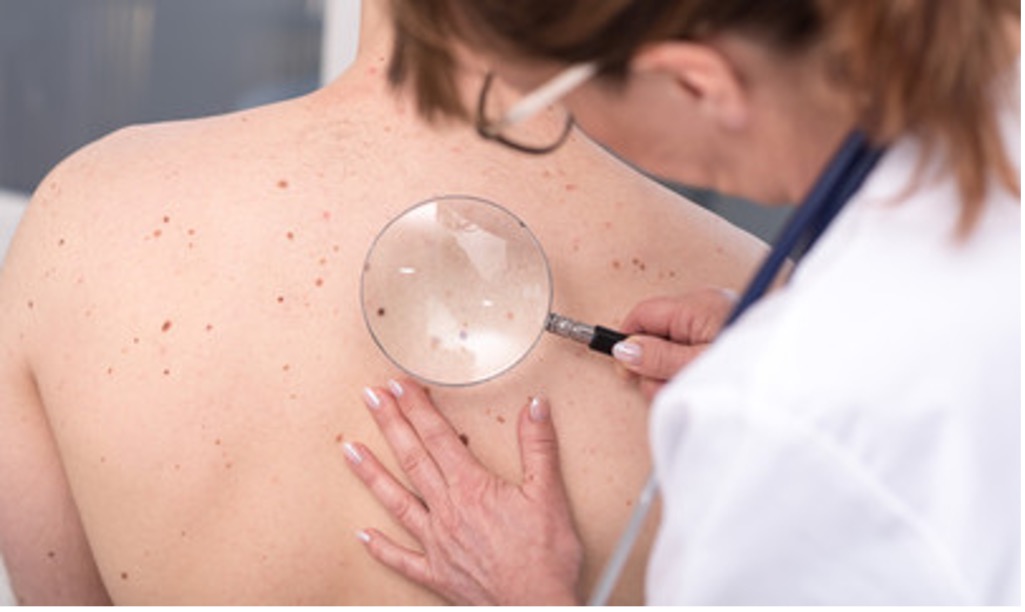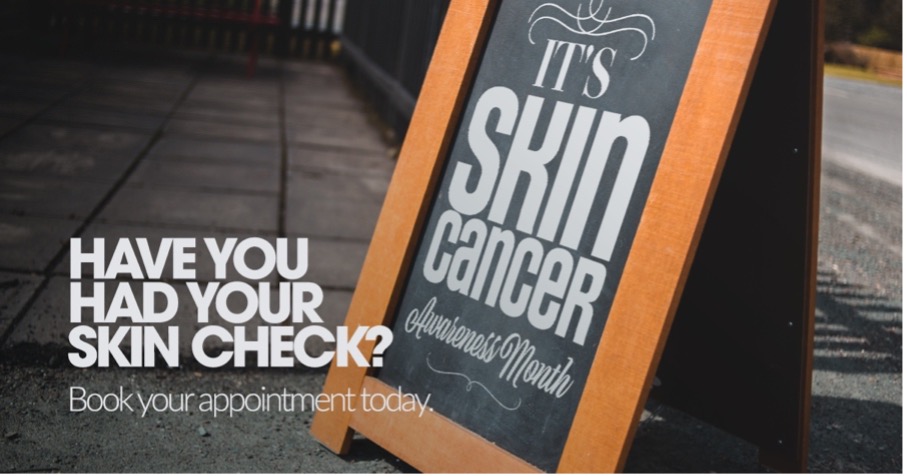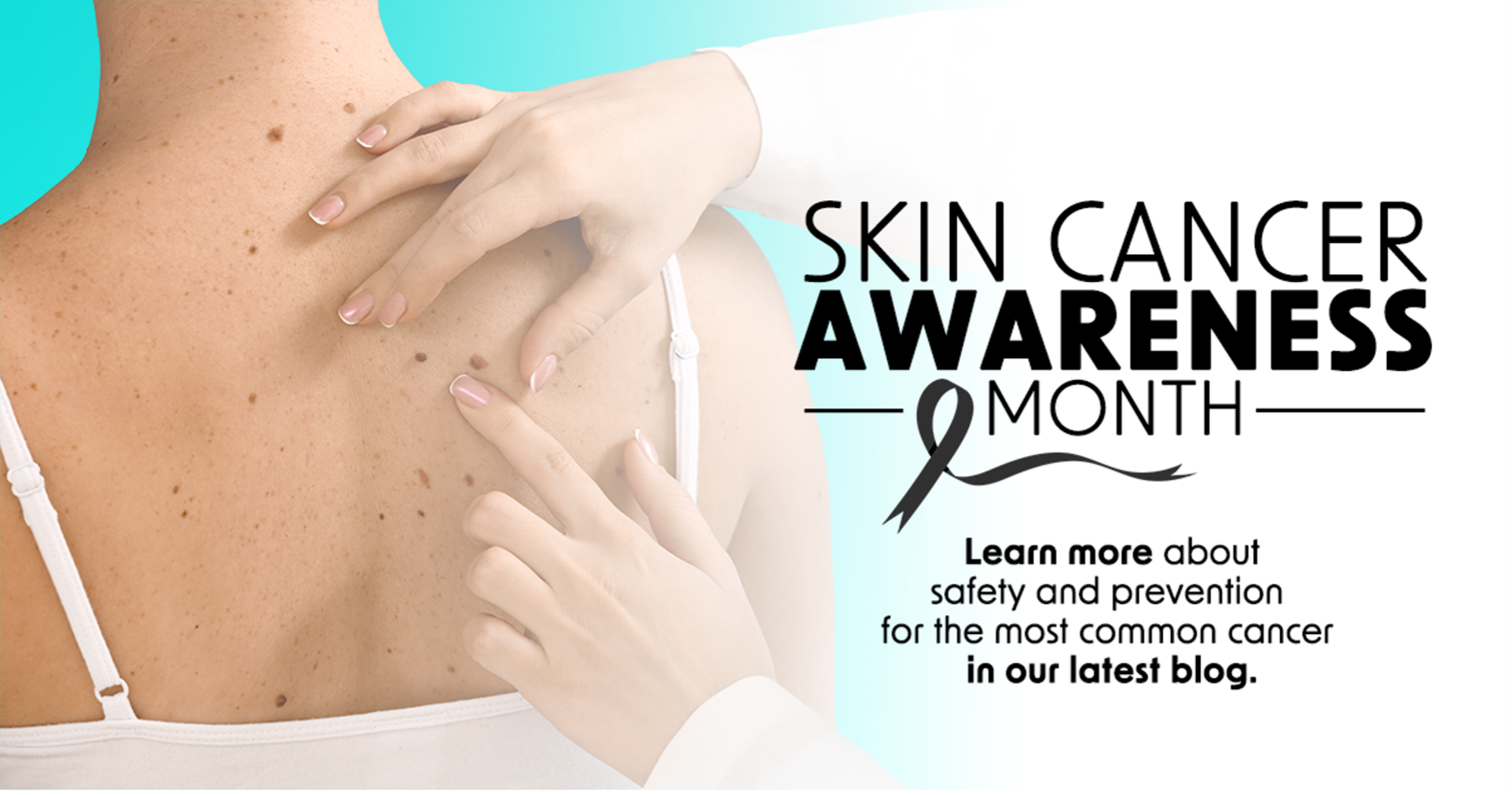Cancer can be a scary and sometimes overwhelming topic, but with knowledge in your corner, it doesn’t have to be. In this blog, we’ll cover everything from common causes and risk factors to the importance of regular examinations. Join us, and let’s talk skin cancer awareness!
Skin Cancer Awareness Month
May is the month of blooming flowers and sunshine, but it’s also a month to raise awareness about a serious condition that this lovely sunshine affects: skin cancer. Skin Cancer Awareness Month is an annual observance dedicated to educating people about the dangers of skin cancer and encouraging them to take preventive measures to protect themselves. So, let’s make it a month of taking action, getting informed, and spreading the word about prevention.

Understanding The Condition
As we soak up the sun’s warm rays, we often forget the importance of taking care of our skin. Skin cancer is a malignant growth on the skin and is one of the most common types of cancer worldwide. According to the American Cancer Society, more than 5 million cases of skin cancer are diagnosed in the United States alone yearly. That’s a startling number. The three main types include basal cell carcinoma, squamous cell carcinoma, and melanoma. Which are primarily caused by exposure to ultraviolet radiation from the sun as well as tanning beds. Basal and squamous cell carcinomas are rarely fatal if detected early. Melanoma is an aggressive type of cancer that forms in the cells that produce melanin, the pigment that gives skin color. While accounting for significantly fewer skin cancer cases, it’s still responsible for most skin cancer-related deaths.
Risk Factors of Skin Cancer
Primarily, skin cancer is caused by harmful ultraviolet rays from the sun or tanning beds. Just one indoor tanning session can increase your chance of developing dangerous skin cancer by 75%. Aside from the risk associated with tanning. Certain individuals are at a higher risk of developing skin cancer due to various factors, such as:
- Age – The longer you’ve had UV exposure and the more sun damage that accumulates, the greater the risk of skin cancer becomes. Those over the age of 50 should practice regular skin checks.
- Fair Skin – Having less of the pigment melanin in your skin provides less protection from UV rays. Those with light skin, blonde or red hair, and blue or green eyes are more susceptible to sun damage.
- Family History – If you have close family members who have battled skin cancer, your risk is increased as genetics play a role in development.
- History of Sunburns – Experiencing multiple severe sunburns, especially in childhood and adolescence, damages skin cells, thus increasing the risk of cancer.
- Presence of Moles – Having moles that are changing, bleeding, or asymmetrical has also been associated with an increased risk of melanoma. The most dangerous form of skin cancer.
- Weakened Immune System – If your immune system is already compromised by an illness or medical treatment such as chemotherapy, you are more vulnerable to the development of skin cancer.

The Importance of Practicing Precaution
As sun exposure is a primary cause of skin cancer, to reduce your risk, it’s critical to protect your skin from it. Wearing sunscreen with an SPF of 30 or higher, especially during peak sun hours (10 AM to 4 PM.) Aim to stay in the shade when possible and avoid tanning beds altogether. Getting sunburned just once every two years can triple your risk for melanoma. Now, despite best efforts, skin cancer can still develop in some. Therefore, regular examinations and annual visits to your dermatologist are crucial to staying healthy. Early detection of skin cancer is key to the success of treatment, so stay vigilant and stay in the shade.
 The summer sun may feel warm and inviting, but its UV rays are no friend to our skin! Through years of experience and state-of-the-art technology, Alamo Heights Dermatology is here to help you stay one step ahead of skin cancer. Put your skin first! Learn more about our services by calling us at (210) 555-8447 or schedule an appointment today by visiting our website.
The summer sun may feel warm and inviting, but its UV rays are no friend to our skin! Through years of experience and state-of-the-art technology, Alamo Heights Dermatology is here to help you stay one step ahead of skin cancer. Put your skin first! Learn more about our services by calling us at (210) 555-8447 or schedule an appointment today by visiting our website.
Resources:
https://www.cdc.gov/cancer/skin/basic_info/risk_factors.htm
https://www.aad.org/public/diseases/skin-cancer
https://www.skincancer.org/skin-cancer-information/melanoma/


